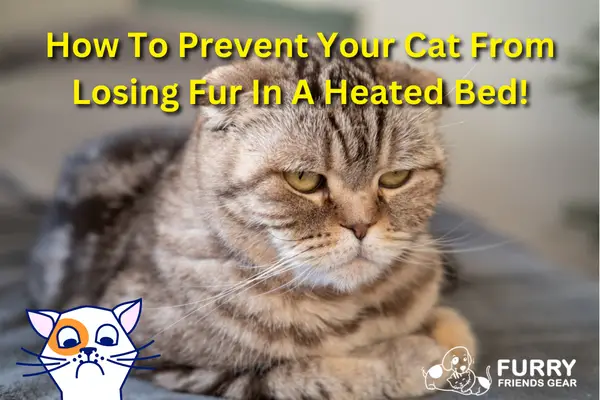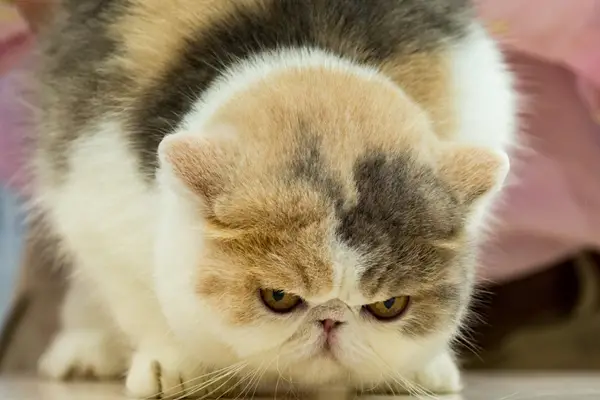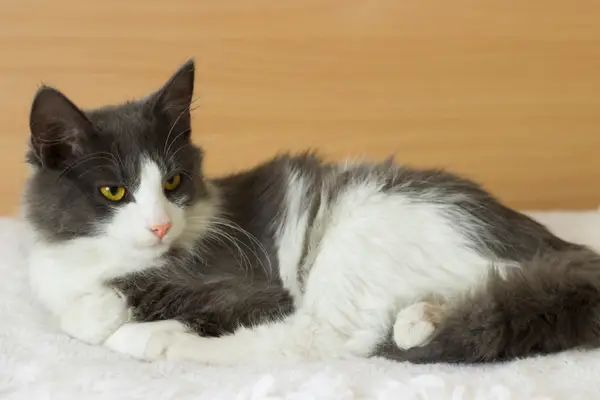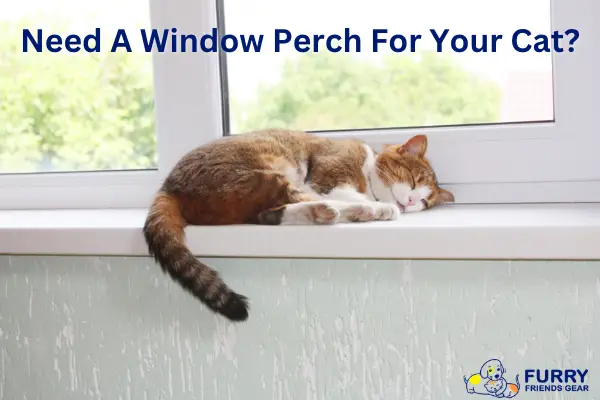
Seeing that your cat is losing fur can be nerve-wracking. The first question you’d probably have is “why”.
Honestly, there are tons of reasons and possibilities why your cat loses fur. But, if it so happens that your cat started losing fur just after you’ve bought a heated cat bed, then it’s likely because of the bed.
If this is what you suspect, don’t panic or throw the bed away yet. It’s best to understand first why this happens.
In this article, we’re going to answer "Why is my cat losing fur in heated bed?", things you can do to help the fur grow back, and other possible reasons why your cat is losing fur.
Related article: Do Cats Need A Cat Bed?

Cat Losing Fur In Heated Bed
Before we explain the process of a cat losing fur in heated bed, let us first tackle how a heated cat bed works.
The primary purpose of heated beds is to keep your cat warm during the coldest seasons. They can also help ease the pain for senior cats suffering from arthritis or cats experiencing general body pain due to an accident.
There are generally three types of heated cat beds, self-warming, electric, and microwavable. Among the three, the electric heated bed is probably more prone to dangers than the other two and here’s why:
Self-warming beds use a heat-reflecting technology that reflects your cat’s natural body heat to her. So, there’s no way that temperature can go beyond what your cat needs.
Microwavable beds require to be microwaved before use. There are not a lot of features involved, and the temperature no longer rises than needed. Instead, it just goes down, making it not very useful for your cat when you’re not at home.
As you can see, both these types don’t include lots of features for heating. This means there are fewer chances your cat can bite through wires or get strangled by the cords.
On the other hand, electric-type heated cat beds utilize a heating pad that is inserted into the bed. This is what warms the bed up. This means there will be wire cords involved, and heat regulation tends to be harder (unless you get the thermostatically-controlled heated beds).
Now that we have explained the difference between the three, let us try to understand why your cat is losing in a heated cat bed.
As we've mentioned earlier, there are dangers involved when using a heated cat bed, and one of these is burning your cat’s skin. When your cat feels like one particular part of her body is heating up, she’ll excessively lick it as a way to try to cool it. In turn, your cat loses fur in that one area.
In a heated bed, this is usually on the belly part of your cat when she lies down on a heating pad. Most likely, there are not many layers between the heating pad and your cat’s body, which makes it very hot for your cat.
This causes a burning sensation, which will let your cat lick the area and causes the area to go bald.
Things You Can Do To Help The Fur Grow Back
Are you still asking yourself, "Why is my cat losing fur in heated Bed?" Now, if you have a cat already gone bald on that one area because of the heating pad, don’t panic. Her hair will definitely grow back.
Try to examine the heating pad and try think about what you can do to prevent it from heating up so much. Maybe you can buy a timer that will automatically go off after a certain amount of time, so it doesn’t get too hot.
You can also place extra layers of padding, so it’s not too hot for your pet. Or, you might just need to buy a heated cat bed that comes with heat-setting controls or one that is thermostatically controlled.
As for the bald spot, once you solve the problem with the heating pad, your cat would no longer have a reason to excessively lick that area. So, the hair will definitely grow back, but you should still monitor in case.
And if you need additional aid to make hair grow faster, a visit to the vet will surely help.

Other Possible Reasons For A Cat Losing Fur In Heated Bed
Now, when your cat starts losing fur, we don’t recommend immediately concluding that it’s because of a heated cat bed. Because, as we’ve mentioned at the very beginning, there are many possibilities as to why your cat is losing hair.
Here are some of them:
- Allergies: These can either be environmental or food-based allergies. This causes your cat’s body to itch and be inflamed, resulting in bald patches on your cat’s body.
To determine the exact cause of your cat’s allergy, your vet would need to run tests. If results determine that it’s due to environmental factors, medications, and treatments may be recommended. If it’s due to food, a change in diet will be effective.
- Fleas and Ticks: Fleas and ticks bite, which causes irritation that your cat will most likely scratch. However, some cats tend to be more affected by this because of the antigens on the flea’s saliva. This makes them irritate their skin more, causing bald patches on their body.
So, it’s highly recommended to check your cat’s body for fleas and ticks while grooming. And if you happen to see them, get rid of them using proper products that target fleas.
- Ringworm: This is another common reason your cat would lose hair. Cats usually get this from another infected animal. Your vet would likely need to do a test to determine if your cat has it. If the results are positive, appropriate medications and treatments will be given.
- Thyroid Disease: Your cat can also lose hair if she has thyroid disease. This is because cat hair becomes very dull when they acquire this, making it very easy to pull out while brushing. To treat hyperthyroidism, your cat may need to undergo surgery or use radioactive iodine.
- Psychogenic Dermatitis: This is a condition seen in cats when they excessively lick their bodies to the point that they’ll go bald. It’s usually the result of stress or boredom and can only be treated when changing things in their environment.
As there are many possible causes of hair loss, and most are medicinal related, heated cat beds should be the last thing to consider when your cat loses hair. We highly recommend eliminating any medical issues first.
Don’t assume anything, and always take your cat to the vet when you see problems. Most medical conditions come along with other symptoms, and they can easily be eliminated if your vet detects none of those on your cat.
Cat Losing Fur In Heated Bed: Should I Still Use It?
Now that you know the risks of using a heated bed, should you still allow your cat to use one?
Our answer is simple: Of course.
Yes, there are dangers, but it will always depend on the cat bed you choose. You must always prioritize the quality of the product over anything else. Also, not using a heated bed is like depriving your cat to enjoy the benefits of using one.
As you know, heated cat beds:
- Can be therapeutic
- Can help prevent illnesses
- Can improve a cat’s temperament
These three will not only benefit your cat but you as well. It may also mean fewer visits to the vet and you will save more money.
But, if the risks scare you more than you can’t even consider the benefits, the trick here is to choose the right heated cat bed.
Things To Consider When Choosing The Right Heated Cat Bed
Choosing a heated cat bed can be challenging. As we know, cats can be picky, and since we have already mentioned the risks, the more you should put a lot of thought into what bed you’re choosing.
So, here’s what you can do:
First, you need to consider the type of bed. Again, there are three types: self-warming, electric, and microwavable. If you’re afraid of the risks of using a heating pad, then go for the self-warming or microwavable type. However, do note that a heating pad, if used correctly, can bring better warmth to your cat.
Second, consider the style of the bed. In this one, we want you to think about your cat’s comfortability rather than the aesthetics. Ask yourself where your cat will be most comfortable.
For example, if your cat loves privacy, then probably a pod-type bed would be the best choice. If your cat loves being cuddled, a cocoon bed would be the most suitable. If your cat loves it to be open, then you can go for a rectangular or round plush bed.
Third, find a bed with appropriate padding. Why? Padding will serve as your cat’s body support when she lies down. It’s also what will make her more comfortable.
On top of that, if you’re choosing an electric-type bed, then you should make sure that the padding between the pad and your cat is enough.
Fourth, check out the features. For electric types, we recommend choosing thermostatically-controlled heated beds. The heating pads on this bed automatically adjust based on your cat’s body temperature, which means the heat provided will always be right for your cat.
Lastly, consider your budget. This will help you a lot in narrowing down your options.

Conclusion
Even if heated beds, especially the electric-type ones, can cause your cat to lose fur, it’s not something to be afraid of. Don’t throw out a heated bed just because of this.
The key here is choosing the most suitable heat bed for your cat. If it so happens that you bought a heated bed that utilizes a heating pad that is not thermostatically controlled, it’s recommended to monitor it to ensure that it’s not too hot.
We have a list of excellent heated beds here to check out if you need help finding a high-quality bed for your furry friend.
https://www.furryfriendsgear.com/cat-losing-fur-in-heated-bed/?feed_id=326&_unique_id=6320b64e34e2b
No comments:
Post a Comment